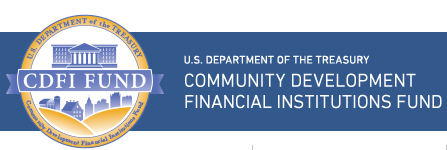A story of Ruth and Jim...
Ruth and Jim were diligent over the years with their investment discipline. Both had max’d out their 401Ks and provided for higher education funding for both of their kids, own their home free and clear and have a diversified investment portfolio. All-in-all … financially very comfortable!

Now they are sitting on a significant payoff in capital gains from liquidating their holdings in common stock investments. … done as a concern that the stock market may be overheated.
That’s the good news. The less than good news is Ruth and Jim are now confronted with a major capital gains tax bite in 2019. So, they sought advice from their trusted financial advisors and discovered a provision of the new tax law that converts long-term capital gains to tax savings … plus the potential for substantial long-term investment growth. All these benefits are elements of investments in a Qualified Opportunity Fund (QOF).
The Tax Cuts and Jobs Act (TCJA) provides for investment in QOFs … touted by many tax experts and investors as the most generous tax incentive of this type ever. In exchange for significant tax savings, this provision of the new tax law is designed to motivate investors with realized capital gains to invest those profits in low-income communities.
The investment vehicle is QOFs and the payoff to investors is to defer, minimize or eliminate capital gains taxes. Low-income communities are expected to benefit from capital formation and job creation that otherwise would not likely be attracted to those areas. More on the striking details in a bit.
Ruth and Jim’s financial and accounting advisors offered this simple explanation of how they may benefit from a QOF investment. Their example, just to make the math easy, is based on a hypothetical capital gain of $100,000. Ruth and Jim reviewed four options to resolve their capital gain issue.
- Do nothing … pay taxes on capital gain of $100,000
- Invest in a QOF … capital gain deferred - at end of 5 years, taxable capital gain reduced by 10% = $90,000
- Invest in a QOF … capital gain deferred - at end of 7 years, taxable capital gain reduced by an additional 5% = $85,000
- Invest in a QOF … and hold for 10 years, taxable capital gain = zero!

Note From Kyle
First off, let me be clear. I am not a professional when it comes to interpreting tax law. That said, you are urged to meet with your tax advisor and seek professional guidance
for the specifics of QOF investments as it may apply to your unique
circumstances. Here, I only present my understanding of the provisions as it
may apply to this hypothetical couple.
OK. Let’s get down to the details. There are two primary benefits for investors who choose to participate in QOF investments.
- There is no cap on the amount of capital gains proceeds that may be invested;
- Capital gains are deferred with the potential to be “forgiven”;
- investments held for five to seven years reduces the capital gain by ten to fifteen percent.
- investments held for ten years may receive permanent exclusion of gain.
Note: If you are an interested investor, you must exhibit a sense of urgency to participate in a QOF. Investors will pay tax on the deferred gain when they sell the QOF investment. Mandatory gain must be recognized at the end of 2026 even if the investment remains unsold. So, to enjoy the seven-year fifteen percent “forgiveness” means the investment must be made before the end of 2019.
Over 8,700 QOFs have been designated across the U.S. which creates a huge opportunity for investors seeking relief from some or all capital gains taxes. For a complete listing of designated QOFs as well as map locations, click on the CDFI Fund logo above.
Click here to access the IRS Frequently Asked Questions site regarding qualified opportunity zones eligible for QOF investments.
As the old saying goes, “There’s always more to the story” … especially as the new regulation may apply to your unique circumstances. There is a myriad of rules, exceptions to the rules, interpretations of the rules and special circumstances to be reviewed, considered and evaluated as to application of the law in each individual taxpayer’s circumstances.
So, one-size-fits-all is not the answer … neither is do-it-yourself. Do promptly schedule a meeting with your tax advisor to determine how you may benefit.
KRS Holdings stands ready to refer you to Trusted Advisors who you may choose to contact to review your qualifications for these major tax relief and investment potential benefits.
Call or email … we’ll respond promptly.






